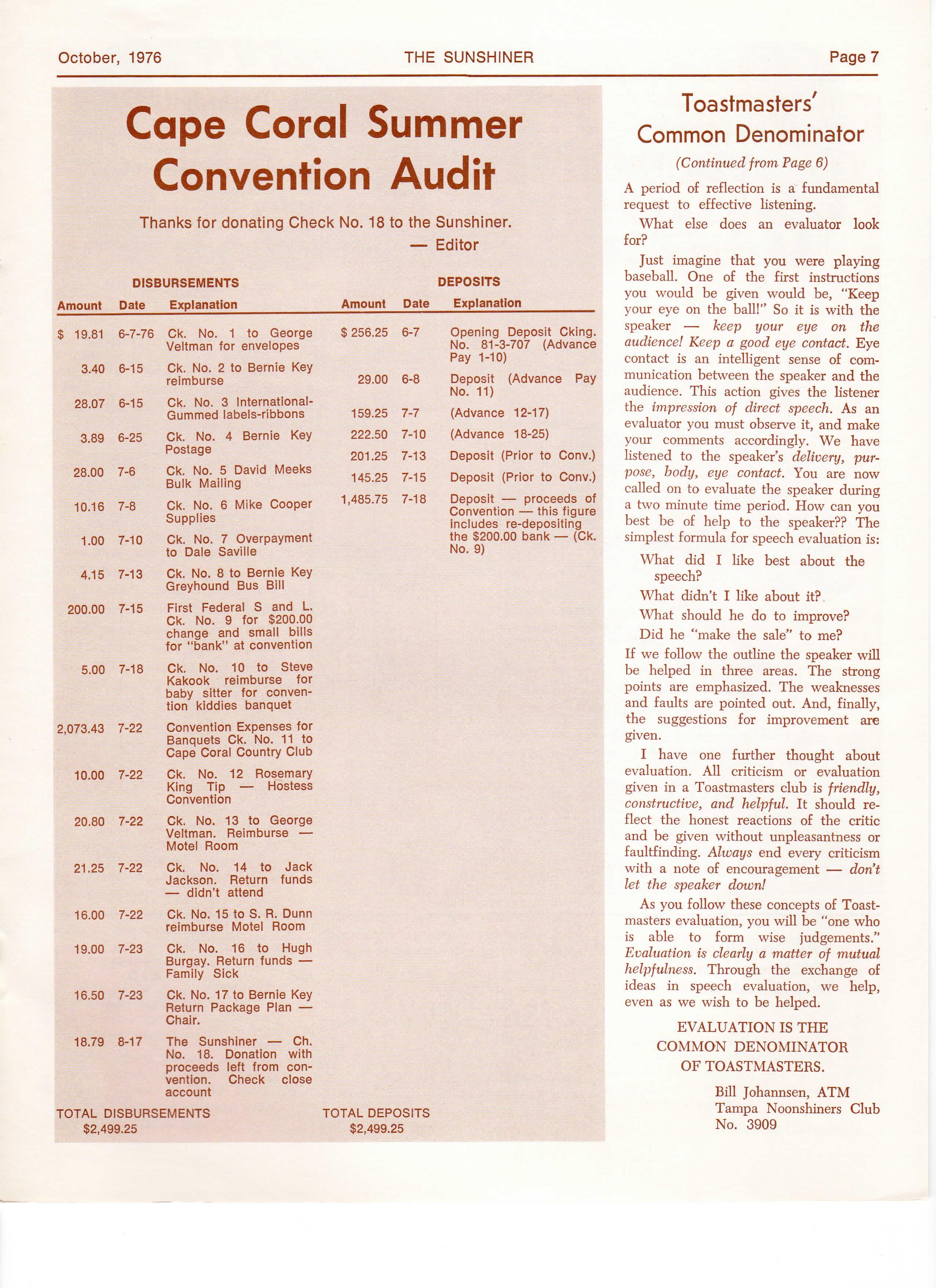
1 minute read
Cape Coral Summer Convention Audit
Toastmasters' Common Denominator
(Continued from Page 6)
A period of reflection is a fundamental request to effective listening
What else does an evaluator look for?
Just imagine that you were playing baseball One of the first instructions you would be given would be, "Keep your eye on the ball!" So i t is wit h the speaker — keep your eye on the audience! Keep a good eye contact. Eye contact is an intelligent sense of communication between the speaker and the audience This action gives the listener the impression of direct speech. As an evaluator you must observe it, and make your comments accordingly W e have listened to the speaker's delivery, purpose, body, eye contact. You are now called on to evaluate the speaker during a tw o minute time period Ho w can you best be of help to the speaker?? The simplest formula for speech evaluation is:
What did I like best about the speech?
What didn't I like about it?
What should he do to improve?
Di d he "make the sale" to me?
If we follow the outline the speaker wil l be helped i n three areas The strong points are emphasized The weaknesses and faults are pointed out And , finally, the suggestions for improvement are given have one further thought about evaluation. Al l criticism or evaluation given i n a Toastmasters club is friendly, constructive, and helpful. I t should reflect the honest reactions of the critic and be given without unpleasantness or faultfinding Always end every criticism wit h a note of encouragement — don't let the speaker down!
As you follow these concepts of Toastmasters evaluation, you wil l be "one who is able to form wise judgements." Evaluation is clearly a matter of mutual helpfulness. Through the exchange of ideas i n speech evaluation, we help, even as we wish to be helped
EVALUATIO N IS TH E
COMMO N DENOMINATO R OF TOASTMASTERS
Bill Johannsen, AT M Tampa Noonshiners Club No 3909



